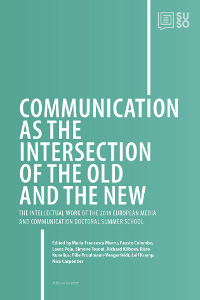
| |||
Communication
| |||
| Title chapter: | What kinds of normative theories do we need? Ideal and non-ideal theories in communication research | ||
| Author: | Kari Karppinen | ||
| Keywords: | normative theory, ideal theory, non-ideal theory, normative reconstruction, capabilities approach | ||
| Abstract: | This chapter discusses different types of normative theories and their uses in media and communication research. In particular, the chapter introduces the distinction between ideal and non-ideal theories in political theory and discusses its implications for different kinds of research aims in media and communication studies. Arguing that communication research cannot escape normative and political considerations, the question is not whether we need normative theory, but what kinds normative approaches and what kinds of engagements with normative theory are most useful for media and communication research and for what purposes. Ultimately, the chapter argues that the usefulness of theoretical approaches is not an either/or choice, or even a matter of which theories are normatively justified or true. Instead, different types of ideal and non-ideal theories are better understood in terms of a scale where different theories have different uses for different purposes. As Kwame Anthony Appiah (2017) argues, the appropriateness of different theories and normative frameworks for specific research projects can then be evaluated also more pragmatically, from the perspective of what they enable us to do. | ||
| Click here to download full chapter [pdf] | |||
|
The | |||